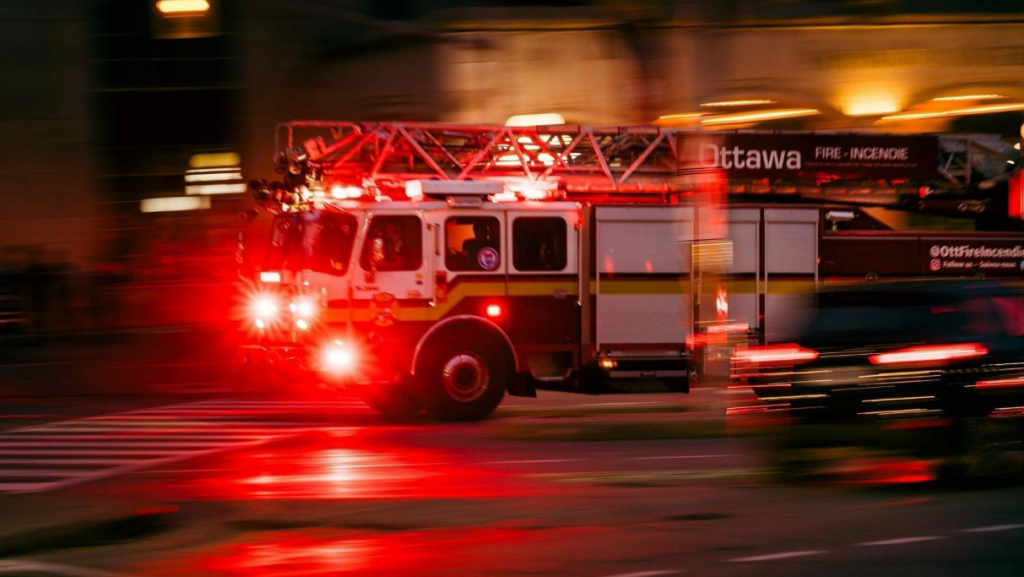Preparing for future flooding on the mind of Ottawa Valley provincial minister
Posted Apr 8, 2021 03:03:00 PM.
Although many in the Ottawa Valley are happy to see the last of the snow melt away, they also have one eye on the area’s major watersheds, with the hope that this is the year the pattern of major bi-annual flooding ends.
Devastating floods in 2017 and 2019 left a trail of destruction, including millions of dollars in damage to hundreds of properties in Ottawa and the Valley.
Among those optimistic that 2021 will not make for a flooding three-peat is John Yakabuski, the Minister of Natural Resources and Forestry and longtime MPP for Renfrew-Nipissing-Pembroke.
Born and raised in Barry’s Bay and having served as the MPP since 2003, he is acutely aware of the destructive nature of the past two flooding events.
Floods along the Ottawa, Bonnechere and Madawaska Rivers in '17 and '19 also left hundreds of home and cottage owners either displaced or on the hook to cover the costs of the damage.
Some government programs covered the costs to primary residences, but cottage owners, many of them seniors who lived in their cottages most of the year, were not compensated. Worse yet, many of them received letters from their insurance companies notifying them their policies were cancelled and non-renewable due to the likelihood of future flooding.
There was no shortage of public outcry in 2019, both in the Valley and in Ottawa from angry flooding victims who demanded answers as to how and why these events kept happening.
Yakabuski and officials representing various agencies responsible for flood management travelled up and down the Valley that year and held public meetings. They met property owners, many exhausted from filling sandbags over the course of days and nights in an attempt to save their homes, and the residents were angry.
Some blamed Ontario Power Generation for not lowering water levels in the reservoirs along the rivers farther north, while others said it was a failure of timely communication that caught flood victims off guard.
“What we saw in 2019 were the ideal conditions to cause the flooding that year,” Yakabuski said. “It was a perfect storm of above average snowfall in the winter of 2018/19 along with low temperatures going well into the spring, and significant rainfall during snow melt. All those factors led to the floods that went through our area, Ottawa and other parts of the province.”
No matter who or what was at fault, flood victims wanted answers and Yakabuski responded in July of 2019 by appointing Doug McNeil as Special Advisor on Flooding. His mandate was to provide expert advice, to find out what happened and to make recommendations to the government to help in any future events.
McNeil’s report, Independent Review of the 2019 Flood Events in Ontario, provided recommendations that all levels of government, along with independent agencies and various organizations have acknowledged and taken steps to implement in order to reduce the damaging effects any future flooding may cause.
“When we appointed Doug McNeil in 2019, it was the first flooding report ever done in the province of Ontario,” he said. “It was quite comprehensive with 66 recommendations and some were for the province, some for the feds, some for independent agencies, municipalities and some for individuals as well.”
Yakabuski said the report recognized there were 11 separate ministries within the government that had a role in dealing with flooding, and as a result the government has acted on several of the recommendations to better prepare the province for future events.
“Just prior to COVID, in early 2020, we rolled out our flooding strategy which involves mechanisms as to how we would forecast flooding better, prepare for it better, manage it better when it happens and recover from it in its aftermath,” he said. “So we have increased our ability to forecast flooding and there are now more monitoring stations and we have made it clear to all our agencies exactly what their responsibilities are.”
“We are now forecasting earlier in the year and gathering more data as to the makeup of the snow-packs and we have invested $4.7-million into additional forecasting and planning.”
He said, along with all levels of government and agencies making positive changes, property owners and those considering moving close to a river have a new awareness of flooding and the dangers of building a home close to the waterfront.
He cites changes in land planning practices at the municipal levels in terms of flood plain mapping and noted the provincial government has already begun investing more into this area.
Compared to 2017 and 2019, Yakabuski said the province and respective agencies are is in a better position in 2021 in terms of forecasting, planning and communication practices.
However, he said one unknown variable still remains.
“One thing Mr. McNeil’s report made absolutely and crystal clear is that flooding is not something we can prevent, but what we can do is find better ways to deal with it than we have been doing in the past,” he said. “But we can’t predict how much and how fast the snow will melt or how much rain will fall because in the end, Mother Nature has the last word.”
Although the City of Ottawa has opened sandbag sites this spring, it is not expecting a terrible flood season. Burn bans have been put into place in multiple local municipalities over the last couple of weeks due to dry environmental conditions.








